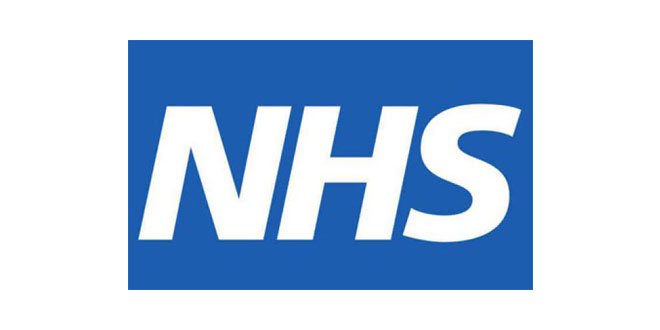Offer £5,200 Grants To Nursing Students To Stop NHS Workforce Crisis
 A radical expansion of nurse training, with cost-of-living grants of £5,200 a year and a tripling in the number of people training as postgraduates, is among a set of urgent measures that a new report says are needed to prevent the health and care workforce crisis from worsening dramatically.
A radical expansion of nurse training, with cost-of-living grants of £5,200 a year and a tripling in the number of people training as postgraduates, is among a set of urgent measures that a new report says are needed to prevent the health and care workforce crisis from worsening dramatically.
Experts from the Nuffield Trust, The King’s Fund and the Health Foundation calculate that these solutions can only be fully implemented if there is a £900 million increase in the annual budget for training and developing health care workers in England by 2023/24.
Closing the gap focuses on nursing and general practice, where shortages are especially acute. On nursing, it concludes that even with grants, the expansion of postgraduate training, bringing 5,000 more students onto nursing courses each year and actions to stop nurses leaving the NHS, the gap cannot be entirely filled domestically by 2023/24.
The authors say that to keep services functioning, an additional 5,000 nurses a year must therefore also be ethically recruited from abroad. This means the government will need to make wide exceptions to new salary restrictions in the immigration White Paper and fund the visa costs incurred by NHS trusts.
Projections for the report show that without decisive actions like these being embraced in the upcoming NHS workforce plan, nurse shortages will double to 70,000 and GP shortages in England will almost triple to 7,000 by 2023/24. The authors warn this deterioration would mean the goals of the recent NHS long-term plan, such as improvements in general practice and better access to mental health care, will be impossible to achieve.
The report’s analysis of general practice finds the shortfall in the number of GPs is so serious that it cannot be filled at all. The only way forward is to use the skills of other staff including pharmacists and physiotherapists much more widely and routinely in and alongside general practice. This is a major undertaking and requires, for example, the recruitment of 6,000 physiotherapists.
On social care, the authors say the proposed migration system after Brexit is not appropriate, and the Government will have to go back to the drawing board to come up with a special new route into the UK for care workers. The NHS must be careful that pay policies to attract more staff do not simply pull them out of social care services which patients rely on. A comprehensive overhaul of social care funding is needed immediately to stop poor pay and conditions continuing to drive staff away.
The report also calls for:
- £250 million a year in additional funding for developing workforce skills, as part of the overall £900 million, so that staff can keep up with changing technology and patient needs.
- the government to legislate immediately to create a regulated profession of physician associates, so that these skilled staff can take on more tasks and reduce the pressure on doctors across England.
- nationally backed initiatives to close gender and ethnic pay gaps in the NHS.
- the NHS to become a better employer so that fewer people want to leave. For example, this will require letting more people near retirement work part-time.
- NHS pay to keep rising in real terms and not return to cuts or fall behind pay in the rest of the economy, with a review of how extra pay and student loan write-offs can be used to tempt staff into shortage areas.
The report follows the three organisations’ analysis last year assessing the scale of the problem, which warned that staffing shortages in NHS trusts could top 250,000 without urgent action. It comes ahead of the workforce implementation plan expected next month, which will lay out how NHS leaders aim to address these issues.
Anita Charlesworth, Director of Research and Economics at the Health Foundation, said:
‘The NHS doesn’t have enough nurses today and without action this problem is going to get significantly worse over the coming years. The workforce is the make or break issue for the health service and unless staffing shortages are substantially reduced the recent NHS long-term plan can only be a wish list.
‘It doesn’t have to be this way. Decisive policy change backed by targeted investment could eliminate nursing shortages over the next decade. But if the NHS is to have access to the skilled health workers it needs, the government must stop seeing funding for the workforce as a cost to be minimised and prioritise investment in training more staff.’
Richard Murray, Chief Executive of The King’s Fund, said:
‘Patients are facing longer delays for NHS treatment as services struggle to recruit and retain enough staff. Without radical action to expand the NHS workforce, there is a very real risk that some of the extra funding pledged by the government will go unspent, waiting lists will continue to grow and important improvements to services like mental health and general practice will fail.
‘NHS workforce shortages are mirrored in social care where poor pay and conditions continue to drive away staff. Social care is heavily reliant on overseas recruitment, but the government’s post-Brexit migration proposals risk limiting this vital source of workers. The government should go back to the drawing board to devise a route for care workers to enter the UK and develop a more sustainable funding model for social care.’
Candace Imison, Director of Workforce Strategy at the Nuffield Trust, said:
‘The imminent workforce plan needs to mark the moment we stop treating the staffing of health and social care as a second order issue. Our recommendations might seem radical, but the time for tinkering at the margins has passed.
‘I’m especially worried that while medical and technological advances mean staff need to adapt and learn more quickly than ever, we have slashed the funds that support this. If any of our lofty aspirations about better outcomes and digital technology are to become a reality, we need to get the budget for developing skills at least back to where it was – and that means a fourfold increase by 2023/24.’






